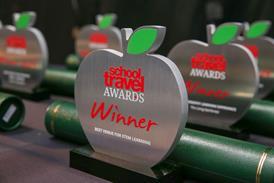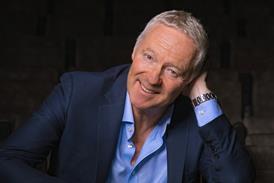Eddie Aylett, principal of Bower Park Academy in Romford, London, on progressive visits and creative ways to fund school trips.
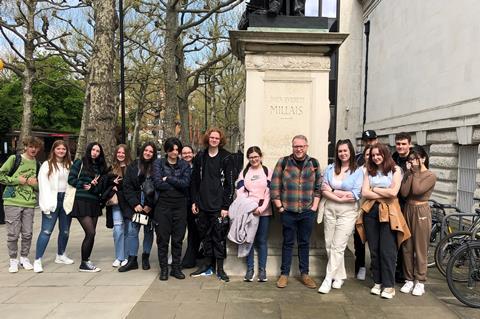
You have been in education for 24 years; how did it all begin?
My mum was a teacher and I started out alongside my twin brother who is also a teacher (my sister is too!). My brother and I began working for NST taking children from across the UK overseas for sports tournaments. That’s when I gained a love for travel and sports and saw the impact.
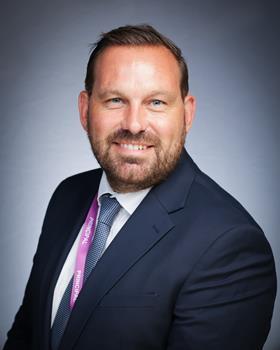
Then in 2000 my brother and I joined my mum’s school as teachers and wanted to continue running trips. I was teaching PE so saw the benefit of learning outside the classroom experiences from that angle and then I began expanding them into drama, taking children to Venice each year. It evolved from there. I took up the director of extra-curricular activity role at The British School in the Netherlands before coming back to the UK. I joined Bower Park Academy in 2011 and worked my way up to the hot seat.
What was your own experience of school trips?
We had a wonderful childhood and were able to go on family holidays, but we didn’t go on any school trips because of affordability. When I began teaching, it was all about how I could create those opportunities for the children at my school. For example, we did a ten-day trip to South Africa and managed to fundraise enough so that the children paid £300. We did a tuck shop, bake sales, you name it – it opened people’s eyes to what you can do if you set your mind to it.
What is the ethos of learning outside the classroom at Bower Park?
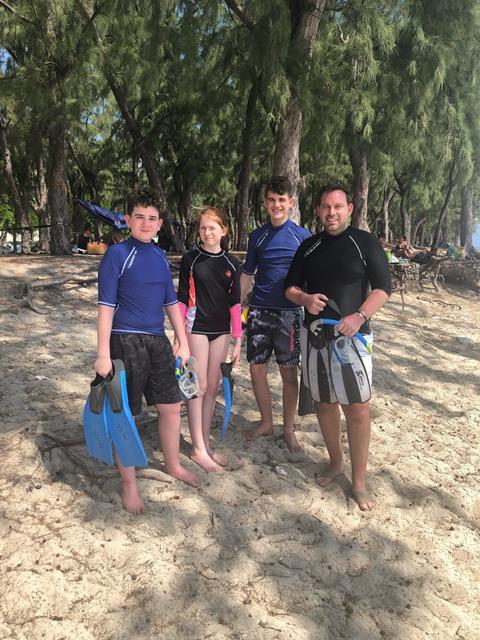
Pre-Covid, our outside the classroom experiences were second to none because of the Erasmus programme which gave us the funding. Many parents said the trips we ran were a big pull for them sending their children to the school.
We’re now trying to build that back and focus on Character Capital which is not just about what happens in the curriculum. We want to engage people and boost their curiosity of learning. I remember as a child that if learning was tactile, real and lived, it stuck. We have gone from nothing to reinstating field trips for GCSE students and in addition we have a ski trip coming up, PGL trips, French market visits as well as UK and day trips.
We have also changed our curriculum to take advantage of the opportunities for getting children outside the classroom. For example, in the Year 8 scheme of learning in drama they do a Matilda scheme of work which ties in a performance of the show.
How important is it to have ‘progressive’ visits, particularly post-Covid?
Very. It’s all about baby steps. It’s about making sure parents and carers feel that everything has been crossed and dotted. Communication with them is so important because of their apprehension. We still have children who are suffering with anxiety and mental health challenges. Start small and build up. For example, our baby step this year was that all year groups went out on a scavenger hunt in Westfield, Stratford; it’s a great experience and one that sets them up for other visits.
We used to do a First Flight programme for children who had never been on a plane before. We would find a school in Scotland, fly to the nearest airport, visit the school and an attraction and have dinner there before flying home.

Bower Park Academy has changed its curriculum to get children out of the classroom.
I do a student and staff crib sheet along with a letter, itinerary and am very transparent about the information we share. We use the Edulink platform which works very well and sends letters to people’s phones. For our bigger trips we always have two parents’ evenings – one at the beginning about what we’re going to do and where it supports the curriculum/wider experience. Then we do another one running through everything in much more detail.
Do you get to go on many of the trips?
It’s quite tricky now as principal, I think I have done about 185-190 trips. My best one ever was through Erasmus. We got funding to go to Reunion Island for a week; we swam with turtles and the sunsets were amazing and best of all, it was free for the children who went.
What’s the biggest challenge when it comes to these experiences?
Funding, especially as we have 40% pupil premium. It’s about connections you make with charities and other organisations as well as thinking about going in off-peak times and ways in which you can make the trips cheaper. For example, for the ski trip to Austria next Easter, we’re going by coach rather than flying because it’s so much more affordable.
”It’s about working with companies, being flexible with your budget and looking at external funding.”
For example, we have partnered with Global Alliance to have 62 Chinese children coming to the school for an exchange. They’ll spend three days here with other students and we get paid for it – that money goes back into the pot for taking children out on trips.
Would you like to tell us about the work you do in organising educational visits? Get in touch with us by emailing editorial@schooltravelorganiser.com.


